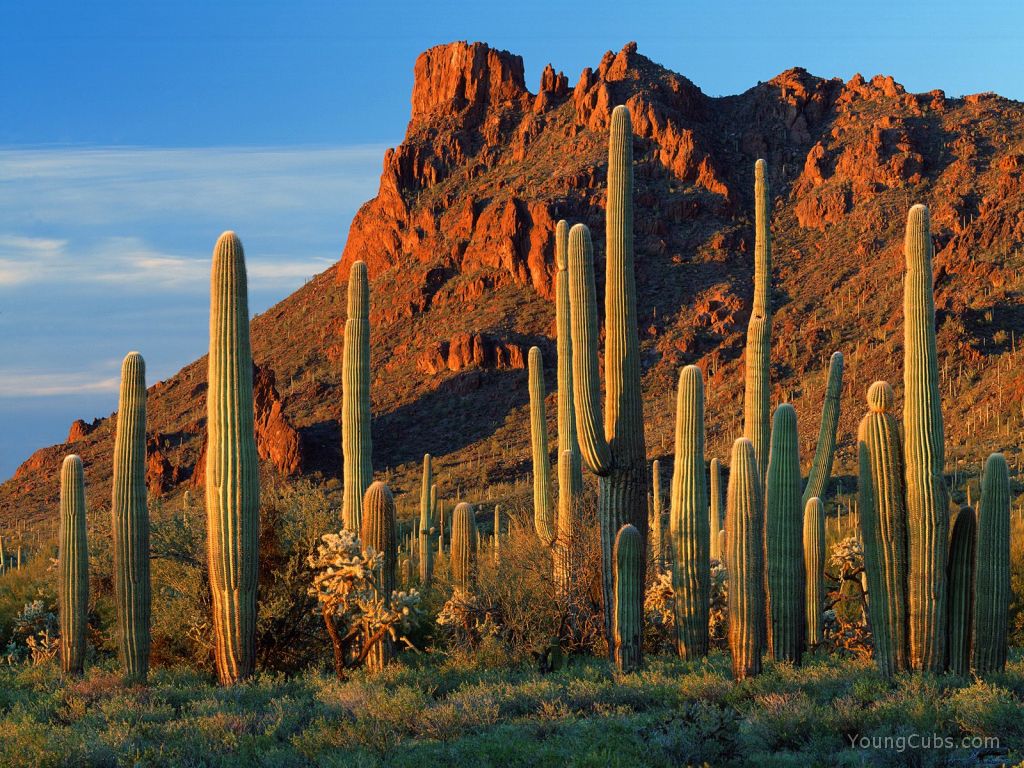In an old Zen story a student comes to visit his dying teacher and asks “Please, tell me. What is the teaching of your entire lifetime?” The teacher is quiet for a few moments then replies, “An appropriate response.”
Each year my husband and I spend time hiking in the desert, most recently in Organ Pipe Cactus National Monument, just a few miles north of the Mexican border in southern Arizona. It is the only place in the US where the organ pipe cactus grows. It is also full of saguaro cactus, forests of saguaro; tall, multi-armed with comical gestures, some hundreds of years old.
The route to the park requires passing through several immigration checkpoints, heavy with the presence of American Border Patrol and many prominent signs warning about smugglers and immigrants moving through remote areas of the park. The signs explicitly said to call 911 right away to report any “suspicious activity.” When we asked a ranger at the Visitor Center about the warning signs, and whether or not it was safe to be out on the remote trails, she said “Oh this is such a safe place - there are eyes everywhere.” My husband and I just looked at each other.
Early the next morning we saw a Border Patrol slowly cruising the campground in his truck. As he approached our campsite, I walked over to talk with him. He was a nice guy, a ranger who’d previously spent ten years on horseback patrolling the Yosemite backcountry. I asked him about the warnings, about how big a deal the smuggling and illegal border crossings really were, and from inside the cab of his truck, fully loaded with weaponry and hi-tech communication devices, he told me that it’s a big deal – there were probably 300 migrant people in the park at any given time. I thought back to the comment from the ranger at the Visitor Center, and wondered if there might be cameras camouflaged inside the cacti, if there really were eyes everywhere.
The nice-guy Border Patrol went on to say that if we saw anyone with a black water bottle, call 911. Other “illegals” may just ask for food or water, he said. We shouldn’t talk to them either, but call 911. Then I understood why we had such unusually good cell service in such a remote desert.
After he left, my husband and I talked about what we would do if we came across someone asking for food or water. There was no doubt that we’d give it to them - it wasn’t hard to discern the appropriate response.
***********
On a recent trip to local grocery store, I noticed a middle-aged man looking quite disheveled, sitting on the sidewalk near the front door emphatically asking everyone who passed by for something to eat. He said 'please.' Most walked right by, not meeting his gaze or offering food - including me.
It's uncomfortable to be that close to hunger, thirst, poverty and pain, to look it right in the eye. It brings us so close to the truth of our own fragility. I wish I'd had the courage to just be uncomfortable long enough to have given him something to eat - to let my own vulnerability meet his vulnerability. Perhaps that is the truest definition of compassion, the merging of our vulnerabilities regardless of story or station. I don’t know the conditions that lead this man to begging. But he was right out there - honest, vulnerable and raw.
As I exited the store, the manager was standing over this man, nearly face-to-face, loudly telling him he had to leave. The man kept repeating “I’m hungry, man, I’m hungry. That’s why I’m doing this!” They argued for a few minutes when he asked the manager “What would you do if you were hungry?” The manager stammered, “What would I do? What would I do if I was hungry?” as if stalling for time, trying to figure out what to say and manage his own frustration, exasperation and helplessness. I didn’t hear the rest of the conversation, and I don’t know what became of the man, but I imagine he left hungry.
As a long-time business owner myself, I tried to put myself in the manager’s position, consider what I might do, how I might respond and how I wanted him to respond. My fantasy was that he would have sat down on the ground beside him, relaxed his shoulders and said “I don’t know, man. I don’t know what I’d do if I was hungry like you,” and given him something to eat.
I think the truth is we don’t know what to do. Acknowledging our own helplessness makes us vulnerable and it is the most honest, most compassionate and just may be the most appropriate response of all.

